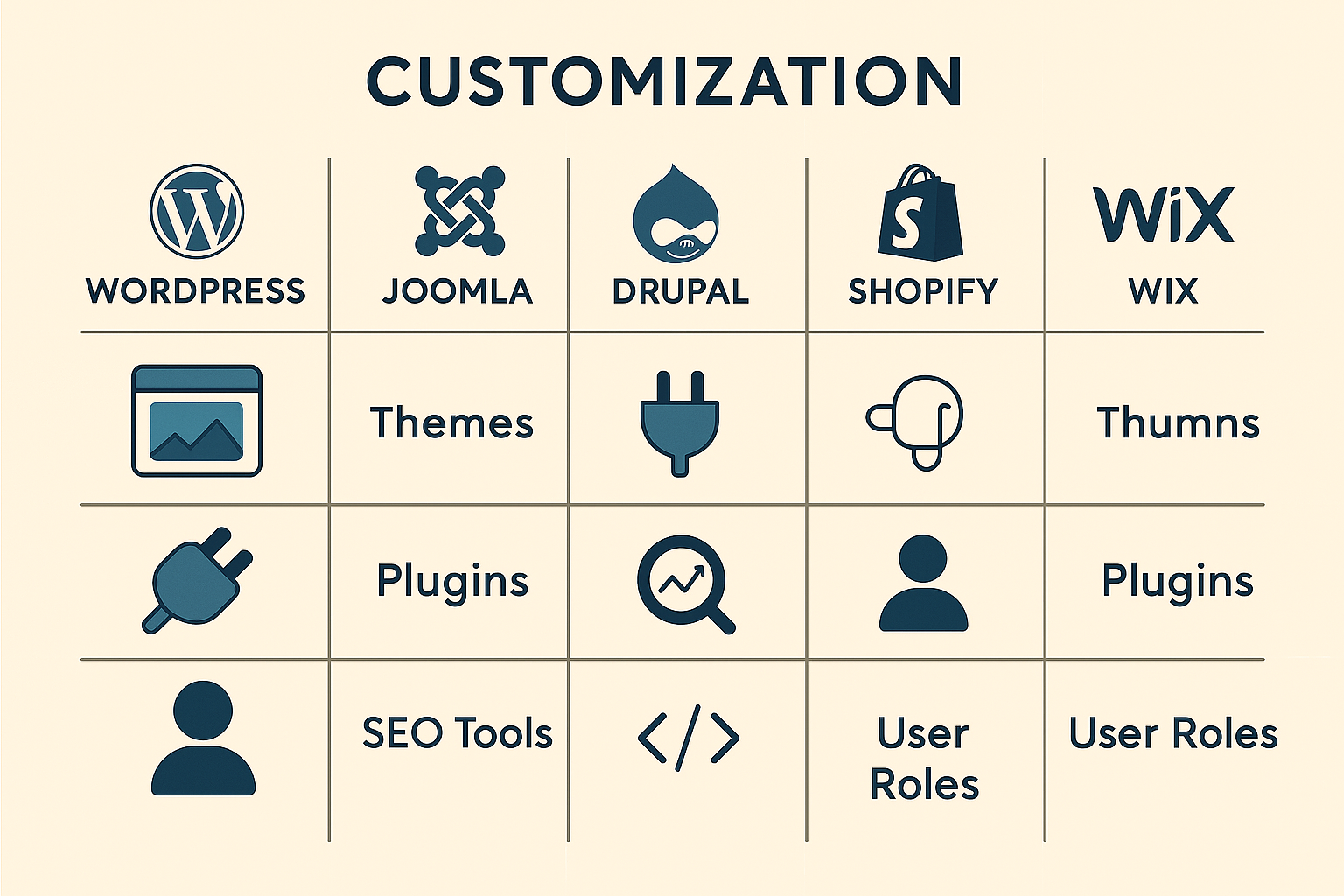When building a website, choosing the right content management system (CMS) is important. Customization features help users shape the design, functionality, and user experience of their website. One of the most popular CMS platforms is WordPress. Many website owners want to understand why WordPress is better than other CMS when it comes to flexibility and design control.
What Is CMS Customization?
CMS customization means changing how a website looks and works. This includes:
-
Themes and design options
-
Plugins or add-ons
-
Layout settings
-
User roles and permissions
-
Integration with tools like social media or email marketing
Different CMS platforms offer different levels of control. Some are more flexible, while others are limited unless you know how to code.
WordPress: Easy Customization for All Users
WordPress offers thousands of free and paid themes. These themes help people create unique designs even without coding skills. With a simple dashboard and drag-and-drop builders like Elementor, anyone can create a custom layout.
You can also use plugins to add new features to your site. There are plugins for SEO, eCommerce, social sharing, and more. This gives users full control over how their site works.
SEO Glossary plugins in WordPress help users manage on-page SEO settings, schema markup, and keyword analysis.
Joomla: Flexible but Complex
Joomla is another popular CMS that allows customization. It gives good control over layouts and has many extensions. However, it is not as beginner-friendly. The interface can be confusing, and some changes may require coding knowledge.
Unlike WordPress, Joomla has fewer free themes and plugins. Also, support for extensions is more limited, which can slow down your progress if you are not experienced.
Drupal: Great Power but Steep Learning Curve
Drupal is a strong CMS used for complex sites like large company websites. It allows deep customization, but it is mostly for advanced users or developers.
Drupal is known for security and performance, but the learning curve is steep. Many tasks require technical skills, and finding the right add-ons can be tricky.
While it is powerful, Drupal is not ideal for small business owners or bloggers who need quick results.
Shopify and Wix: Easy but Limited
Shopify and Wix are CMS platforms that are easy to use and offer simple design tools. However, their customization is limited to what their system allows.
Shopify is best for online stores, but its features are made for eCommerce only. Wix provides drag-and-drop design but gives less control over SEO and backend functions.
With these platforms, you are often locked into their tools and cannot customize the site freely like you can with WordPress.
WordPress Themes and Plugins: A Key Strength
WordPress has a large collection of themes and plugins. You can find themes for blogs, online shops, portfolios, and business websites. Many are free, and premium versions offer advanced features.
Plugins in WordPress act like building blocks. You can install plugins for contact forms, image sliders, SEO tools, and more. This makes it easy to customize your site for your exact needs.
SEO Glossary tools help explain SEO terms and guide users to better search performance, which is useful for beginners.
User Role Management and Content Control
WordPress lets you assign user roles like administrator, editor, author, and subscriber. Each role has different permissions. This is helpful if you work with a team.
You can also schedule posts, manage media files, and control how your site appears to users and search engines.
These features are often easier to manage in WordPress compared to other CMS platforms.
Open Source and Community Support
WordPress is open-source. This means many developers around the world contribute to it. As a result, users benefit from regular updates, strong security, and wide plugin support.
The WordPress community also creates guides, tutorials, and support forums to help users. If you face an issue, you can likely find a solution online easily.
This community support is another reason why WordPress is better than other CMS for people who want full customization and control without high costs.
Conclusion: Customization Made Simple with WordPress
When comparing WordPress with platforms like Joomla, Drupal, Shopify, and Wix, WordPress offers the best balance between ease of use and deep customization.
From themes and plugins to user roles and SEO tools, WordPress allows website owners to build the exact site they need. Whether you're creating a blog, a business website, or an online store, WordPress gives you full control.
This is the key reason why WordPress is better than other CMS for beginners and advanced users alike.
